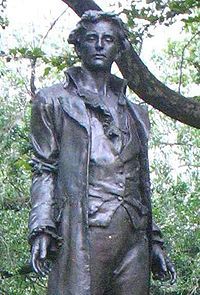The next big shock to the world’s financial system could happen as soon as Monday morning.
How do I know this? Because the world’s financial leaders are expecting something really bad, and have publicly announced their intentions of preventing the consequences of something that they have proven unable to fix.
It started on Friday, when Germany gave up on Greece.
Chancellor Angela Merkel’s government is preparing plans to shore up German banks in the event that Greece fails to meet the terms of its aid package and defaults, three coalition officials said…
Greece is “on a knife’s edge,” German Finance Minister Wolfgang Schaeuble told lawmakers at a closed-door meeting in Berlin on Sept. 7, a report in parliament’s bulletin showed yesterday. If the government can’t meet the aid terms, “it’s up to Greece to figure out how to get financing without the euro zone’s help,” he later said in a speech to parliament.
When it comes to unofficial leaks like this, I tend to fall back on the wisdom of Otto von Bismarck when he said, “Never believe anything in politics until it has been officially denied.”
Then, right on cue, both Greece and Germany officially denied it. Thus making it true.
What is really scary is the two developments that immediately followed this news.
The G7 stepped up and promised their support in defending the financial status quo.
Central Banks stand ready to provide liquidity to banks as required. We will take all necessary actions to ensure the resilience of banking systems and financial markets.…
Excess volatility and disorderly movements in exchange rates have adverse implications for economic and financial stability. We will consult closely in regard to actions in exchange markets and will cooperate as appropriate.
Why would they bother to announce this unless they suspected that people questioned either their resolve, or their ability?
To conclude all these official declarations that “there is nothing to worry about” and “everything is under control”, the IMF also promised to step in if necessary.
The International Monetary Fund will likely re-activate a $580 billion resource pool in coming weeks to ensure it has funds to help cover Europe’s worsening sovereign-debt crisis, according to several people close to the matter….
According to the IMF, the pool of supplementary resources are only to be activated when “needed to forestall or cope with a threat to the international monetary system.”
The IMF has been beefing up this fund since shortly before the European debt crisis reached this new crisis level. It’s almost as if they knew something like this was inevitable.
The problem is that politics often works more slowly than bankers.
The board of governors agreed in December to roughly double quotas from around $375 billion to around $750 billion. But out of the 187 member countries, only 17 have legally accepted the increase, including Japan, the U.K. and Korea. Most of the countries with the biggest quotas, such as the U.S., China and Germany, haven’t yet gone through the legal process, such as parliamentary or congressional approval, need to hand over their promised dues.
While the American media focuses on opening week of football, handicapping the presidential race, celebrity gossip, reality TV, or talking about the latest electronic gadget, the financial markets are preparing for crisis in ways that we haven’t seen since early 2008.
If the worst happens, the American public will be caught by surprise again because the news media failed us yet again.

 On this day in 1776, General George Washington asks for a volunteer for an extremely dangerous mission: to gather intelligence behind enemy lines before the coming Battle of Harlem Heights. Captain Nathan Hale of the 19th Regiment of the Continental Army stepped forward and subsequently become one of the first known American spies of the Revolutionary War.
On this day in 1776, General George Washington asks for a volunteer for an extremely dangerous mission: to gather intelligence behind enemy lines before the coming Battle of Harlem Heights. Captain Nathan Hale of the 19th Regiment of the Continental Army stepped forward and subsequently become one of the first known American spies of the Revolutionary War.
